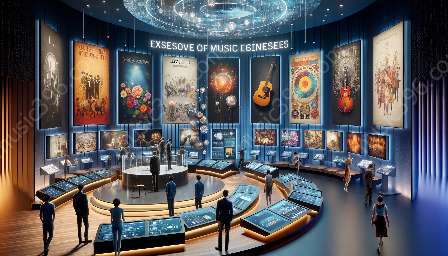Music and Gender Identities: Exploring the Intersection Through Critical Musicology
The Relationship Between Music and Gender
Music has always been a reflection of the society in which it exists, and as such, it is deeply intertwined with issues of gender and identity. The relationship between music and gender is complex and multifaceted, encompassing aspects of creation, performance, reception, and representation. Critical musicology provides a lens through which we can interrogate and understand the intersections of music and gender identities.
Understanding Critical Musicology
Critical musicology is a theoretical and methodological approach that seeks to analyze music within its broader social, cultural, and political contexts. It challenges traditional musicological perspectives and examines how power dynamics, social hierarchies, and identity constructs influence the creation, dissemination, and reception of music.
In the context of gender identities, critical musicology enables us to explore how music both reflects and shapes prevailing gender norms, stereotypes, and narratives. It invites us to critically examine the ways in which gender is constructed and performed through musical practices, genres, and representations.
Gender Identities in Music Creation
One of the key areas where gender identities intersect with music is in the process of creation. Historically, the music industry has been dominated by male composers and producers, leading to a disproportionate representation of male perspectives and experiences in musical compositions. Critical musicology prompts us to question how gender influences the creative process, the opportunities available to musicians of different genders, and the ways in which gendered expectations and biases shape music production and composition.
Gender Performance and Representation in Music
Music performance is another domain where gender identities come to the forefront. Traditional gender norms often dictate expectations for how individuals should perform according to their gender identity. Critical musicology highlights the ways in which gender performance in music can reinforce or subvert these norms. It encourages us to scrutinize the visual and sonic cues through which gender is constructed and enacted on stage, as well as the power dynamics that shape audience reception and critique of gendered performances.
Reception and Gender Bias
When it comes to the reception of music, gender biases can significantly impact the ways in which audiences engage with and evaluate musical works. Critical musicology draws attention to the ways in which gendered assumptions and stereotypes influence music criticism, marketing, and audience preferences. It prompts us to examine how gendered expectations shape perceptions of musical authenticity, talent, and creativity, ultimately impacting which artists and genres receive acclaim and recognition.
Challenging Gender Norms Through Music
While music has historically been a site for the reproduction of gendered norms, it also has the potential to challenge and disrupt these norms. Critical musicology invites us to explore how musicians and music communities engage in acts of resistance, subversion, and reclamation to challenge gender stereotypes and inequalities. From feminist punk movements to LGBTQ+ anthems, music has served as a powerful platform for expressing and affirming diverse gender identities, fostering solidarity, and effecting social change.
Intersectional Perspectives on Music and Gender
An intersectional approach to music and gender recognizes that the experiences and challenges faced by individuals are shaped by a multitude of intersecting factors, including race, class, sexuality, and disability. Critical musicology encourages us to consider how various forms of social inequality and marginalization intersect with gender identities in the context of music. It prompts us to examine how power dynamics and structural inequalities manifest in the music industry, musical communities, and cultural representations.
Conclusion
Exploring the intersection of music and gender identities through the lens of critical musicology offers a nuanced understanding of the ways in which gender influences music creation, performance, reception, and representation. By critically analyzing the complexities of gender in music, we can strive for more inclusive and equitable musical landscapes that celebrate diversity and challenge societal norms.



















